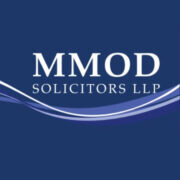Best ADR Mediation & Arbitration Lawyers in Ennis
Share your needs with us, get contacted by law firms.
Free. Takes 2 min.
List of the best lawyers in Ennis, Ireland
About ADR Mediation & Arbitration Law in Ennis, Ireland
Alternative Dispute Resolution - ADR - covers methods of resolving disputes outside the regular court system, most commonly mediation and arbitration. In Ennis, County Clare, residents and businesses use these tools to solve family, commercial, employment, construction, and neighbour disputes. Ireland has a developed ADR framework. Arbitration in Ireland is primarily governed by the Arbitration Act 2010, which implements international arbitration standards and sets out how arbitral tribunals are appointed, how awards are made, and how courts may assist or set aside awards. Mediation is supported by recent legislation and practice which recognises the confidentiality and practical benefits of mediated settlement. Local courts and statutory agencies often encourage parties to consider ADR because it can be faster, less formal, and less costly than full court litigation.
Why You May Need a Lawyer
Using a lawyer in mediation or arbitration can improve your chances of achieving a fair and enforceable outcome. Typical situations where legal help is valuable include:
- Complex commercial disputes where legal rights and obligations under contracts are disputed.
- Cases with significant financial stakes or long-term commercial relationships to preserve.
- Situations where an arbitration clause exists in a contract and you need advice on initiating or resisting arbitration, or enforcing or setting aside an award.
- Family or separation matters where legal rights, child arrangements, or financial settlements require legal assessment before agreement.
- Employment disputes where statutory rights and procedural requirements matter, and where bodies such as the Workplace Relations Commission may be involved.
- Construction and property disputes often involve technical issues and complex contracts, so a lawyer can help instruct experts and frame legal arguments.
- When you need a settlement written so it is legally binding and enforceable, or when you need an arbitration award enforced through the courts.
A lawyer can also help with procedural strategy, drafting arbitration clauses, selecting arbitrators or mediators with the right expertise, and advising on cost exposure and risk.
Local Laws Overview
Key aspects of Irish law relevant to ADR in Ennis include the following points. These are summary level notes and not a substitute for legal advice.
- Arbitration Act 2010: This Act brings Irish arbitration law into line with international standards. It recognises arbitration agreements, gives parties wide autonomy to select procedure and arbitrators, allows courts to assist with enforcement and interim measures, and limits court intervention. Awards can generally only be set aside on narrow grounds such as serious procedural unfairness or lack of jurisdiction. Ireland also enforces foreign arbitral awards under international conventions.
- Mediation protections and practice: Irish policy and legislation support mediation. The law provides for confidentiality and limited admissibility of mediation communications in many circumstances, helping encourage open negotiation. Parties can usually agree to binding terms at the end of mediation by turning any settlement into a contract or consent order where appropriate.
- Court encouragement of ADR: Irish courts and statutory bodies increasingly encourage parties to consider ADR early. Courts may refer suitable civil cases to mediation and may take into account parties refusal to attempt ADR when considering costs.
- Family and employment settings: Family mediation is supported by services and specific practice points; settlements affecting children may need formal court approval. Employment disputes have specialist routes such as the Workplace Relations Commission which offers mediation, adjudication and arbitration-style processes.
- Enforcement and interim measures: In arbitration, courts can usually be asked to grant interim relief or to assist in taking evidence and enforcing awards. In mediation, once parties sign a binding settlement, it is enforced as a contract or by court order if converted into a consent order.
- Local procedural and venue considerations: Ennis is within the Clare and Western Circuit for courts. Many mediations and arbitrations are held in private venues in Ennis or in larger regional centres. Choice of governing law and seat of arbitration affects which courts can be involved and how awards are enforced, so legal advice is important for international or inter-jurisdictional disputes.
Frequently Asked Questions
What is the difference between mediation and arbitration?
Mediation is a facilitated negotiation led by a neutral mediator whose role is to help the parties reach a voluntary settlement. The mediator does not decide the dispute. Arbitration is a process where a neutral arbitrator or panel hears evidence and arguments and makes a binding decision called an award, similar to a private judge. Mediation focuses on agreement and flexibility, while arbitration produces a determinative ruling.
Are mediation agreements and arbitration awards enforceable in Ireland?
Yes. A settlement reached in mediation can be binding if the parties put it into a written agreement or obtain a court consent order where needed. Arbitration awards under the Arbitration Act 2010 are enforceable through the courts, and foreign awards are generally enforceable under international conventions subject to limited grounds for refusal.
Do I need a lawyer to attend mediation?
You do not have to have a lawyer present at mediation, but it is usually wise to get legal advice beforehand and to have a lawyer review any proposed settlement. For complex legal questions or high-value cases, having a lawyer at mediation helps protect your legal rights and ensures the settlement is properly drafted.
How do I find a qualified mediator or arbitrator in Ennis?
Look for professionals with recognised ADR training and experience in the subject area of your dispute. National bodies such as mediation and arbitration institutes maintain lists of accredited practitioners. Local solicitors can recommend mediators or arbitrators who regularly work in County Clare and the Munster region. Check credentials, dispute experience, and procedural rules before appointing someone.
What should I do if my contract has an arbitration clause?
Review the clause carefully and get legal advice early. The clause will usually set out the seat of arbitration, rules to be applied, and appointment mechanisms. If a dispute arises, the clause likely requires arbitration rather than court litigation. A lawyer can help start arbitration proceedings, choose suitable rules and arbitrators, and advise on interim measures and costs.
Are mediation communications confidential?
Mediation communications are generally treated as confidential and are normally not admissible in court. Recent Irish legal developments and practice support confidentiality, but there can be exceptions - for example, where confidentiality would facilitate fraud or where statutory reporting obligations apply. Confirm confidentiality terms in a mediation agreement at the outset.
How long do ADR processes typically take compared with court cases?
Timelines vary by case complexity. Mediation can often be arranged within weeks and may resolve disputes in a single or a few sessions over months. Arbitration can be faster than full court litigation, with some disputes resolved in months but more complex matters taking a year or more. Court litigation typically takes longer, especially for trials and appeals.
Can costs be recovered in mediation or arbitration?
Cost rules depend on the process and any agreement between the parties. In arbitration, the tribunal may make an award on costs, and courts can enforce cost orders. In mediation, each party usually pays its own costs and a share of the mediator's fee, but settlement agreements can include terms for costs. Consider agreeing cost allocation up front.
Will going to mediation affect my rights at court or in arbitration later?
Participating in mediation does not usually waive your legal rights to later pursue court or arbitration proceedings, unless you sign a binding settlement. However, repeated refusal to engage in reasonable ADR may be taken into account by a court when awarding costs. Take legal advice before signing anything that limits future rights.
How do I enforce an arbitration award if the other party refuses to comply?
If a party refuses to comply with an arbitral award, you can apply to the courts for recognition and enforcement of the award. The Arbitration Act 2010 and international conventions provide remedies for enforcement. Because enforcement often involves multiple steps and procedural requirements, legal representation is typically necessary.
Additional Resources
Here are organisations and bodies that can help you find information, practitioners, or formal dispute resolution services in Ireland:
- The Courts Service of Ireland - provides information on court procedures and the role of ADR.
- Law Society of Ireland - guidance and directories for solicitors experienced in ADR.
- Mediators' Institute of Ireland and other mediation bodies - for accredited mediators and codes of practice.
- Chartered Institute of Arbitrators - Ireland branch - for arbitration practitioners and training.
- Workplace Relations Commission - offers mediation and adjudication for employment disputes.
- Legal Aid Board - Family Mediation Service and information about legal aid eligibility.
- Citizens Information - general information about legal options, small claims, and state services.
- Local solicitors and barristers in Ennis and County Clare - for local advice and representation. When contacting practitioners, ask about ADR experience, fees, and recent cases in your dispute area.
Next Steps
If you are considering ADR in Ennis, use this practical approach to move forward:
- Step 1: Identify the nature of the dispute and review any written agreement or clause that requires ADR. Note any timelines or procedural requirements.
- Step 2: Seek initial legal advice. A solicitor experienced in ADR can explain your rights, likely outcomes, and costs, and can help decide whether mediation or arbitration is more suitable.
- Step 3: Consider mediation first if preserving relationships and flexibility are priorities. If mediation is chosen, agree confidentiality terms, fees, and the mediator in writing before starting.
- Step 4: For arbitration, confirm the seat, rules, number of arbitrators, timetable, and cost-sharing arrangements. Early legal input is critical to preserve rights and prepare evidence.
- Step 5: Prepare comprehensively. Gather contracts, correspondence, financial records, and any expert reports needed. Prepare a concise position paper for the mediator or arbitrator.
- Step 6: Negotiate and document outcomes carefully. If you reach a settlement, have it written and reviewed so it is enforceable. If an arbitral award is issued, understand the enforcement options and seek legal help if the award is challenged or not complied with.
- Step 7: If you need help finding a mediator, arbitrator, or lawyer in Ennis, contact local legal practices and the national ADR bodies listed above for referrals and further guidance.
ADR can be an effective route to resolution. Getting the right legal and practical advice at an early stage will help protect your interests and increase the chance of a timely, fair outcome.
Lawzana helps you find the best lawyers and law firms in Ennis through a curated and pre-screened list of qualified legal professionals. Our platform offers rankings and detailed profiles of attorneys and law firms, allowing you to compare based on practice areas, including ADR Mediation & Arbitration , experience, and client feedback.
Each profile includes a description of the firm's areas of practice, client reviews, team members and partners, year of establishment, spoken languages, office locations, contact information, social media presence, and any published articles or resources. Most firms on our platform speak English and are experienced in both local and international legal matters.
Get a quote from top-rated law firms in Ennis, Ireland — quickly, securely, and without unnecessary hassle.
Disclaimer:
The information provided on this page is for general informational purposes only and does not constitute legal advice. While we strive to ensure the accuracy and relevance of the content, legal information may change over time, and interpretations of the law can vary. You should always consult with a qualified legal professional for advice specific to your situation.
We disclaim all liability for actions taken or not taken based on the content of this page. If you believe any information is incorrect or outdated, please contact us, and we will review and update it where appropriate.









